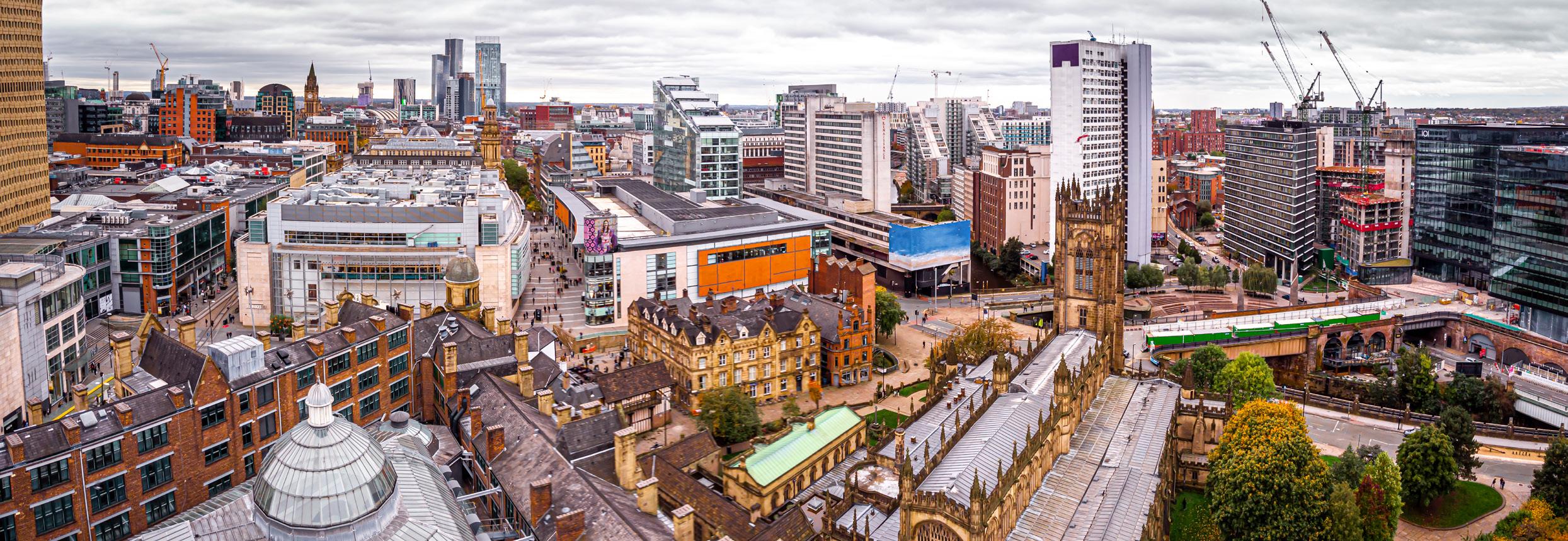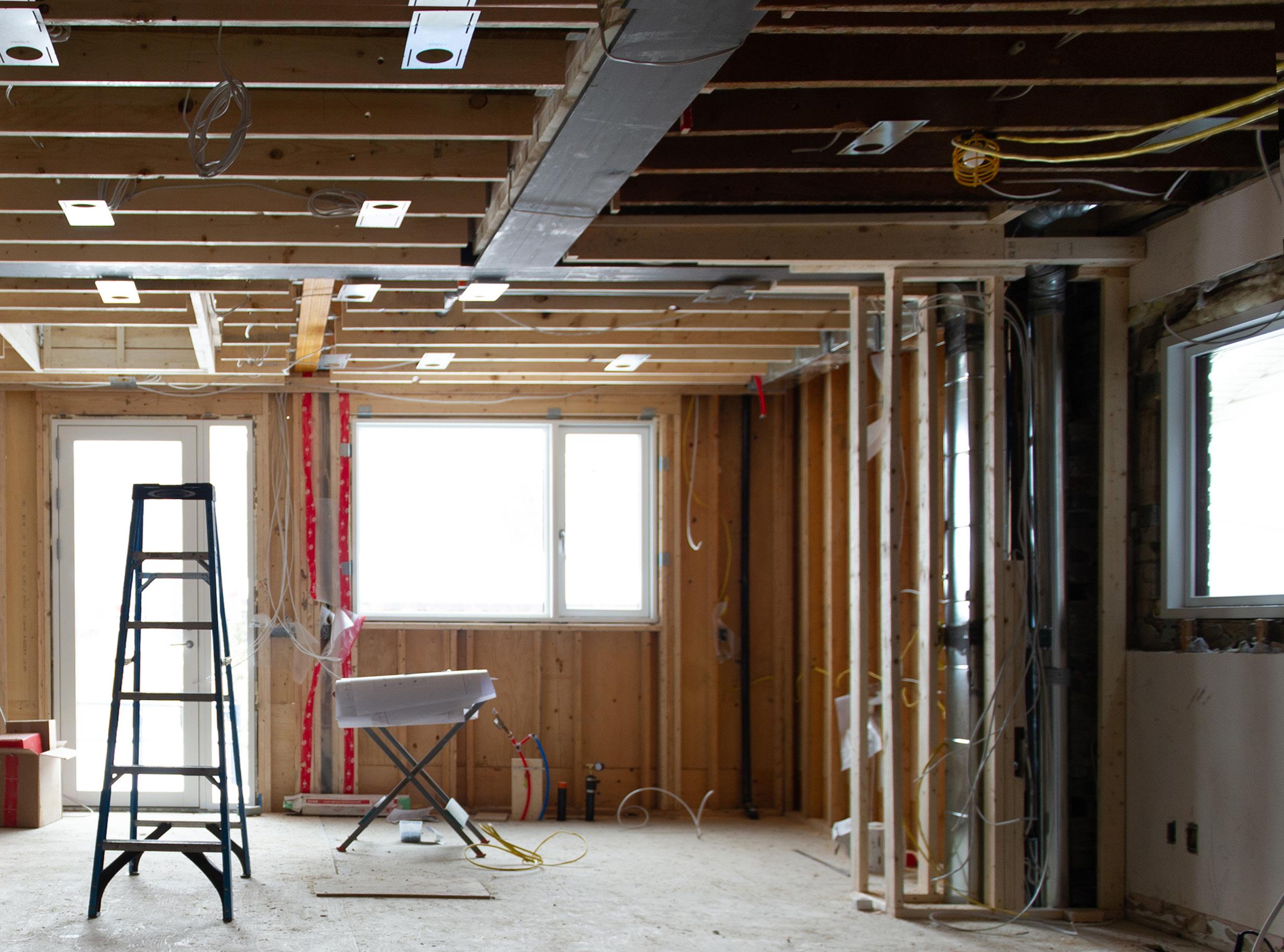
3 minute read
Meeting the Net Zero Challenge in the North
by Chelsea Bailey
The Northern Housing Consortium has released its ‘Real Homes, Real Change, Meeting the Net Zero Challenge in the North’ report, showcasing how the North of the UK is leading the way in delivering green home upgrades.
Advertisement
There are around 7 million homes across the North of the UK, with one-quarter of emissions in the North being attributable to its homes.
Over half of its homes will require energy efficiency upgrades within the next 10 years.
Without upgrading the North’s existing homes, the UK will not be able to meet its net zero targets. However, the North’s social housing sector is leading the way when it comes to its sustainable home upgrades.
Improving energy efficiency could save around £400 annually on energy bills
The Northern Housing Consortium’s report provides examples of the work currently being undertaken by its members.
One of these is First Choice Homes Oldham (FCHO) which through its Sustainability Strategy 2021-26, is working to create real change in the homes that need it the most.
FCHO delivered a whole house retrofit project from October 2021 to September 2022 on six of its least energy-efficient properties across Oldham, to help reduce energy bills for residents.
The aim was to create a scalable blueprint of how it would improve the energy efficiency of many more of its homes and achieve its sustainability goals.
It worked with residents to install measures such as solar panels, triple-glazed windows, and cavity wall insulation.

This investment has led to a significant improvement in the energy efficiency of all the properties, and FCHO has predicted that the modifications will save each home around £400 annually on their energy bills.
On this, Chief Executive at FCHO, Dr Delroy Beverley, explained that the learning from this project is helping to inform: “How we deliver important improvements to more of our customers’ homes, ultimately providing properties that are more energy efficient, warmer, and with lower energy bills for customers and benefitting the environment.”
Going forward, the housing association will be monitoring energy consumption through smart thermostats over the coming years and will work with residents to minimise their energy use and increase cost savings.
Karbon Homes is working to decarbonise heat through air-source heat pumps
In Durham and Northumberland, Karbon Homes has delivered two projects. One was a retrofit programme which saw it install energy improvement works in 97 homes.

This included fitting external walls, cavities, loft and underfloor insulation, new roofs and PV panels. The other was a renewable heat project where 350 airsource heat pumps were fitted into rural, off-grid homes that were previously powered by solid fuel.
As well as lowering emissions produced by the homes, these measures could help residents save up to 40% on their energy bills.
Over 70,000 jobs could be created by installing energy efficiency measures
Since the project has progressed, Karbon has discovered the level of support that residents need to ensure that they can make the most of the change.
Over the next two years, it will be investing a further £3.6 million in improving the energy efficiency of 218 more homes in the areas.
Manchester to retrofit its whole housing stock by 2038
Focusing on creating change through green heating, Manchester City Council replaced an inefficient communal gas boiler with a shared loop ground source heat pump (GSHP) system at Liverton Court in Blackley.
The project is part of the council’s wider ambitions to retrofit its 16,000 properties zero carbon housing stock by 2038.
It is essential that Manchester focuses on retrofitting its homes as around a quarter of its emissions come from housing.
Benefits from the project included emissions savings of 63 TCO 2 e annually and cost savings of £10,000 for the council.
This project reflected the importance of collaboration, as the council worked with residents, academia, installers, and technology suppliers.
Over 70,000 jobs could be created by installing energy efficiency measures
Seeing projects like these take place across the North of the UK is essential to help tackle the cost of living.
Energy efficiency upgrades create thousands of green jobs, with analysis by IPPR North for the Northern Housing Consortium discovering that there is a potential for 77,000 green jobs across the North by the 2030s.

Insulating homes doesn’t just improve efficiency and provide green jobs, but it makes these homes warmer and more comfortable for the people living in them.
Among the 1.3 million homes in the North that don’t meet the government’s current decent homes standard, around half of these are home to someone aged over 60 or with a longterm illness or disability.
Retrofit schemes around the UK have saved the NHS 42p for every £1 invested.
As the above examples highlight, the North’s social housing sector has made good progress, but more is needed to make real change, tackle the housing crisis, and combat the cost of living crisis.
Focusing on creating change through green heating, Manchester City Council replaced an inefficient communal gas boiler with a shared loop ground source heat pump (GSHP) system at Liverton Court in Blackley.
Energy efficiency upgrades create thousands of green jobs, with analysis by IPPR North for the Northern Housing Consortium discovering that there is a potential for 77,000 green jobs across the North by the 2030s.











